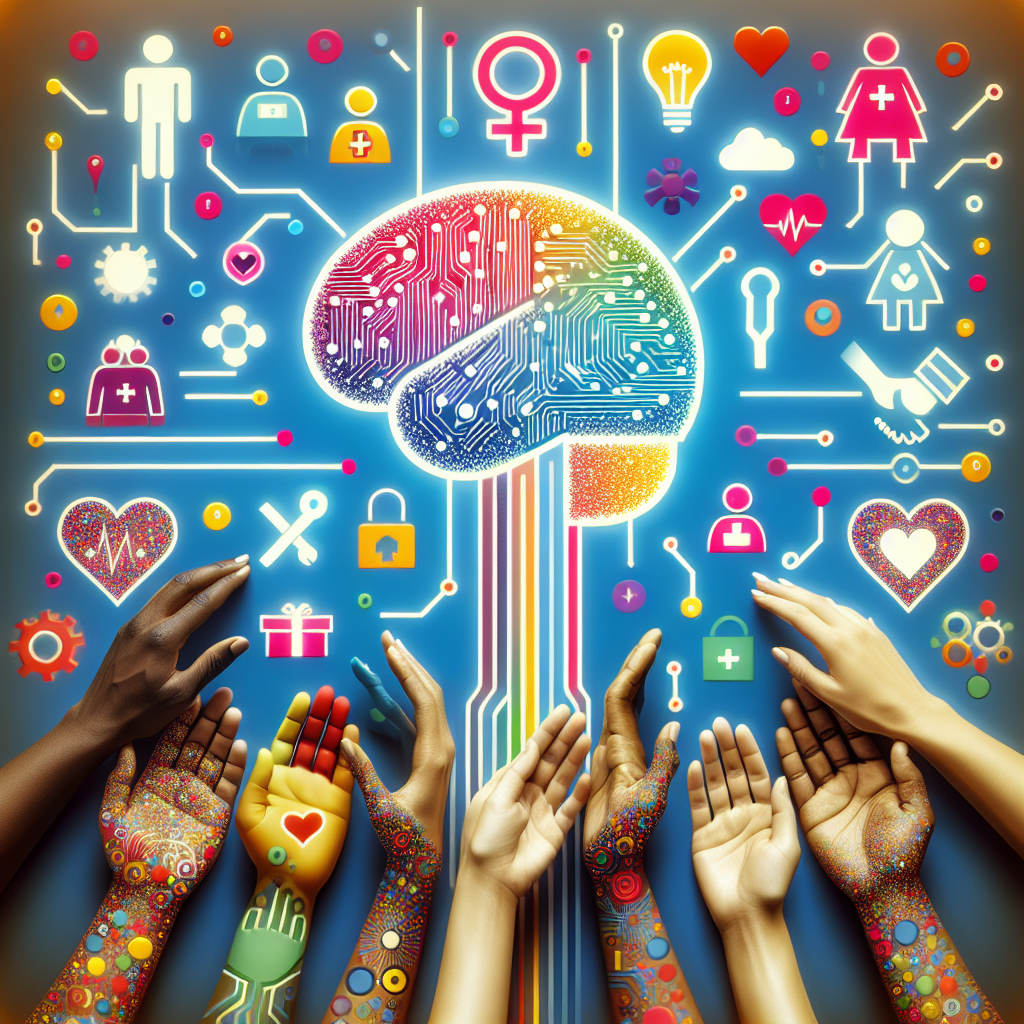AI Deployment in Nonprofit Organizations: Enhancing Social Impact
Artificial Intelligence (AI) has the potential to revolutionize the way nonprofit organizations operate and deliver services to their constituents. By leveraging AI technologies, nonprofits can streamline operations, improve decision-making processes, and enhance their overall social impact. In this article, we will explore the benefits of AI deployment in nonprofit organizations and provide examples of how AI is being used to drive positive change in various sectors.
Benefits of AI Deployment in Nonprofit Organizations
1. Enhanced Data Analysis: Nonprofit organizations collect a vast amount of data on their programs, beneficiaries, donors, and other stakeholders. AI technologies can help nonprofits analyze this data more efficiently and derive valuable insights to inform their decision-making processes. For example, AI algorithms can predict trends in donor behavior, identify at-risk populations, and optimize resource allocation to maximize impact.
2. Improved Operational Efficiency: Nonprofit organizations often struggle with limited resources and manpower. AI technologies can automate routine tasks such as data entry, scheduling, and communication, allowing staff to focus on more strategic activities. By reducing administrative burdens, nonprofits can allocate resources more effectively and deliver services more efficiently.
3. Personalized Services: AI can help nonprofits tailor their services to the specific needs of individual beneficiaries. For example, AI-powered chatbots can provide personalized recommendations for mental health support or connect individuals to relevant resources based on their unique circumstances. By offering customized services, nonprofits can increase engagement and improve outcomes for their clients.
4. Fraud Detection and Prevention: Nonprofit organizations are susceptible to fraud, whether from malicious actors or unintentional errors. AI technologies can help nonprofits detect suspicious activities, such as fraudulent transactions or inaccurate reporting, and prevent financial losses. By implementing AI-powered fraud detection systems, nonprofits can safeguard their resources and maintain the trust of their stakeholders.
5. Predictive Analytics: AI can help nonprofits anticipate future trends and challenges, allowing them to proactively address issues before they escalate. For example, AI algorithms can forecast changes in demand for services, identify emerging social issues, and suggest strategies for addressing them. By leveraging predictive analytics, nonprofits can stay ahead of the curve and adapt their programs to evolving needs.
Examples of AI Deployment in Nonprofit Organizations
1. Crisis Text Line: Crisis Text Line is a nonprofit organization that provides free, 24/7 crisis support via text message. The organization uses AI-powered chatbots to triage incoming messages, identify individuals in crisis, and connect them to trained crisis counselors. By automating the initial screening process, Crisis Text Line can reach more individuals in need and provide timely support to those experiencing mental health crises.
2. Feeding America: Feeding America is a nonprofit network of food banks that distributes food to individuals facing hunger in the United States. The organization uses AI algorithms to optimize its distribution network, predict demand for food assistance, and reduce food waste. By leveraging AI technologies, Feeding America can ensure that food reaches those who need it most and make the most efficient use of its resources.
3. Charity Water: Charity Water is a nonprofit organization that provides clean and safe drinking water to communities in developing countries. The organization uses AI to analyze satellite imagery and identify areas with limited access to clean water. By using AI-powered geospatial analysis, Charity Water can target its resources to the areas most in need and maximize its impact on improving access to clean water.
4. DonorsChoose: DonorsChoose is a nonprofit crowdfunding platform that connects teachers with donors to fund classroom projects. The organization uses AI algorithms to match donor preferences with project proposals, increasing the likelihood of successful funding. By personalizing the donor experience and facilitating targeted giving, DonorsChoose can support more teachers and students in need.
FAQs
1. How can nonprofit organizations get started with AI deployment?
Nonprofit organizations interested in deploying AI technologies can start by conducting a needs assessment to identify areas where AI can add value. They can then explore AI solutions available in the market, such as chatbots, predictive analytics tools, and fraud detection systems. Collaborating with AI experts or partnering with technology companies can help nonprofits navigate the complexities of AI deployment and ensure successful implementation.
2. What are the ethical considerations of AI deployment in nonprofit organizations?
When deploying AI technologies, nonprofit organizations must consider ethical implications such as data privacy, bias, and transparency. It is essential to ensure that AI algorithms are trained on diverse and representative data sets to avoid perpetuating biases. Nonprofits should also be transparent about their use of AI and provide clear explanations of how AI technologies impact their operations and services.
3. How can nonprofits measure the impact of AI deployment on their social missions?
Nonprofit organizations can measure the impact of AI deployment by tracking key performance indicators (KPIs) related to their social missions. For example, nonprofits can monitor changes in service delivery efficiency, client outcomes, donor engagement, and operational costs before and after implementing AI technologies. By analyzing these metrics over time, nonprofits can assess the effectiveness of AI deployment and make data-driven decisions to enhance their social impact.
In conclusion, AI deployment has the potential to enhance the social impact of nonprofit organizations by improving data analysis, operational efficiency, service personalization, fraud detection, and predictive analytics. By leveraging AI technologies effectively, nonprofits can optimize their resources, reach more individuals in need, and drive positive change in their communities. As AI continues to evolve, nonprofit organizations must stay informed about the latest trends and best practices in AI deployment to maximize their social impact and achieve their mission objectives.

